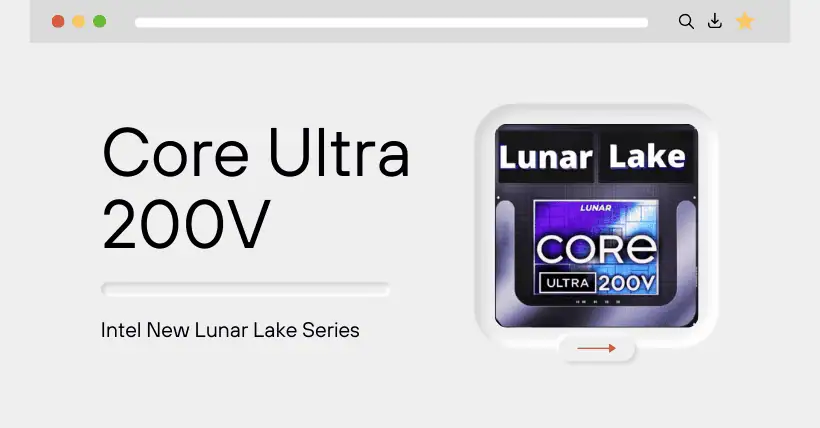On May 22, I wrote an article sharing leaks about Intel’s next two generations of processors and encountered an awkward situation: I didn’t know what to call them.
The codenames for the next two generations are “Lunar Lake” and “Arrow Lake,” but there is concrete news that Intel will adjust the naming rules for future processors, and will not continue to use names like “Core iX-15XXX” and “Core iX-16XXX.”

Intel has already shared a lot of official information about the next two generations of processors, but they have been low-key about the specific new naming rules, not providing any authoritative formal statements, causing some confusion among self-media authors and readers.
Rumor has it that the “Lunar Lake” series processors will be named “Core Ultra 200V,” but I have not seen any conclusive evidence from Intel, such as CPU-Z screenshots, etc.

As a serious author, I believed that this information could not be trusted as evidence to be included in the article, so I adopted a conservative strategy in that article, calling them “15th and 16th generation Core” processors, as shown in Figure 1.
This naming was mainly to facilitate reader understanding because, regardless of what Intel’s next two generations of processors are called, according to Intel’s product development iteration sequence, calling them the “15th and 16th generation Core” processors is justifiable.

— Of course, this naming is not rigorous and is not Intel’s official naming, which may have caused some confusion for readers. Now, the good news is that there is finally concrete evidence for the naming rules of the “Lunar Lake” series processors.
Recently, at the COMPUTEX 2024 event, Intel showcased computers equipped with Lunar Lake processors. Some screenshots of the Windows Task Manager have been exposed, clearly showing the specific model names.
The displayed name is not the previously exposed engineering board model names like “Genuine Intel(R) 0000 1.60GHz,” but the official model name “Core Ultra7 268V.”

According to analysis, this is a high-end model with 4 large cores of the Lion Cove architecture and 4 small cores of the Skymont architecture, totaling 8 threads, and also has 8 Xe2 cores. According to the on-site demonstration, the standard operating frequency is 2.2 GHz, with a maximum operating frequency of around 5.0 GHz.
So, the naming rule for “Lunar Lake” processors can be determined as “Core Ultra 200V,” and in the future, Intel will also launch more “Core Ultra 7 2XXV” series, as well as the “Core Ultra 5 2XXV” series.

As for the specific release and market launch time of the “Core Ultra 200V” series processors, it is expected to be in the third quarter, with the exact date currently unknown.
Finally, I want to share some bad news:
The Core Ultra 200V series processors are packaged together with the running memory and may come in 16GB or 32GB memory versions. This means that if users purchase laptops equipped with the Core Ultra 200V series processors in the future, they will not be able to upgrade the memory.
Related:

Disclaimer: This article is created by the original author. The content of the article represents their personal opinions. Our reposting is for sharing and discussion purposes only and does not imply our endorsement or agreement. If you have any objections, please get in touch with us through the provided channels.



